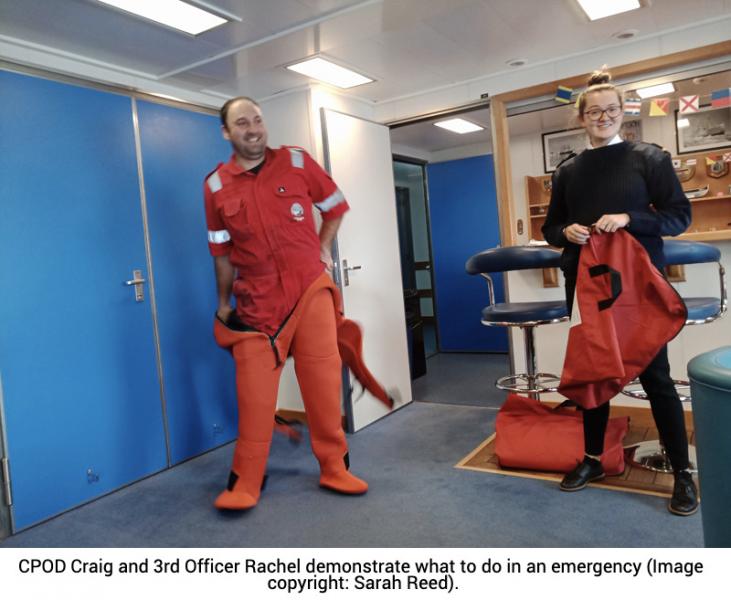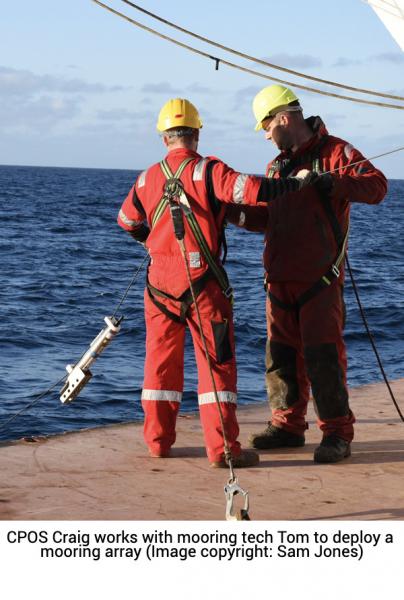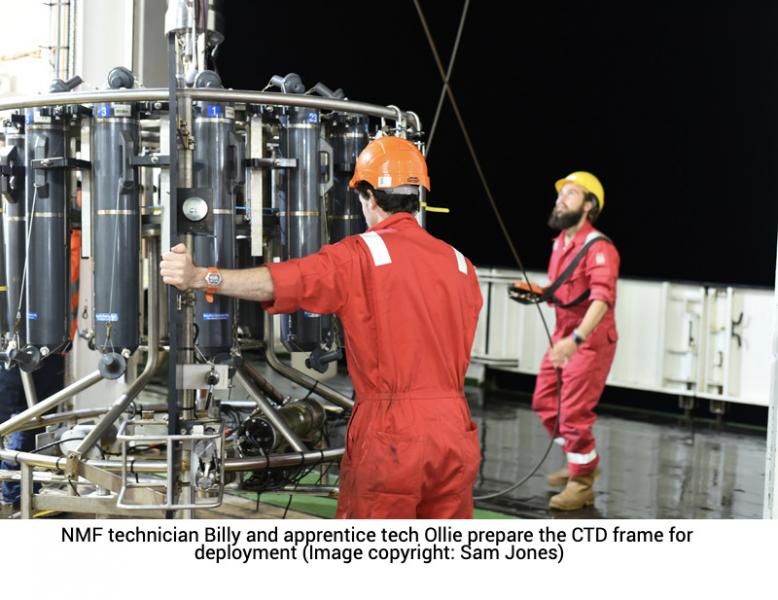Author: Lewis Drysdale, SAMS.
Who is responsible for the successes across the UK OSNAP program? Surely it must be the principal investigators and chief scientists who write the annual reviews, organise meetings, oversee the science, and write those high impact papers that add to our understanding of the Overturning of the Sub-Polar North Atlantic?
And yet, without the hard-working post-docs and PhD students that contributed to those publications, wrote code, and turned ideas into reality that work could not have been possible. This is generally where the science program starts and stops. Somewhere between PhD and PI. In that space science is done and we move forward collectively.

However, scientists (and science) must be supported. This is particularly evident on a cruise, which represents the pointy end of that scientific yard stick. You cannot work independently of others when on a cruise: each person must rely on everyone else to support them. Oceanographic cruises are therefore not possible unsupported and we should pay homage to the people that keep them going.
First and foremost, the chefs, stewards, and pursers. Without them we would be very unhappy and we would struggle to work efficiently. The treat of having trifle and ice cream for desert on a Wednesday evening while riding the swell of the Iceland Basin is all very well, but we also require the basic requirements of sustenance every 3–6 hours and some level of comfort after a long day. That science support group provides those things.
But then we wouldn’t be comfortable without heating, flushing toilets, lights, and an engine to keep us moving against the swells. We wouldn’t have food without electricity to power the freezers or ovens. The chief engineer, 2nd, 3rd engineers, motorman, and ETO are there for those things. And we mostly take this for granted. A flushing toilet in our land-lubbing homes is a relatively simple affair but at sea, well it’s at bit more complicated. We rely on those below deck inhabitants for science support as well.

So, with everything working we are off to science. We cannot do anything, however, without someone to take us there. Four officers, specifically, who dedicate themselves to our safe passage. Their job is just as important as ours because they are the ones who deliver us to our area of scientific interest and make sure we get as much time as we can to conduct our experiments when we get there. And when we do actually get there we need much more science support from Petty Officers whether Chief (CPO) or of Deck (POD) and Science (CPOS) or the Able Body seamen (AB), who drive the cranes, tie the ropes, fight with rogue buoys, and wrangle CTD frames. Without them our science would be slow, unsafe, and very tiresome.
Working alongside the ships’ crew and the scientists are the technicians. They are the link between raw seawater and raw data. They drive the CTDs, re-battery instruments, download data, upload instructions, log events, curate the numerous fixed technology, and check data quality. During OSNAP cruises, for example, a herculean effort is required to produce the sort of quality science required to meet the objectives of the program. Moorings consisting of thousands of metres of wire, dozens of buoys and instruments, and tonnes of anchor chain need to be measured precisely, made up, delivered, and man-handled on to the boat for every single mooring. On DY120 there are seven of these moorings plus spares of everything. The mobilisation of this equipment is relatively simple, if quite lengthy. Moorings must be deployed without tangle and their recovery is often a difficult and high-pressure situation. There are few operations like this in the world, outside of ocean science.

Once the data are on board, quality must be checked and instrument failures logged. Meticulous control must be exerted at this stage because even the very slightest error could propagate through the system and affect the integrity of the science. Here the technicians contribute directly to the science and the scientists to the technical aspects. Lines become blurred and a scientist may become part-time programmer and a technician becomes researcher.
The above dedication really extends only to the UK OSNAP at sea support, and even then only to our cruise DY120 on RRS Discovery. I think it is essential to remember and acknowledge these great contributions as the program continues to its seventh year. Certainly, without all the support at sea we would be, quite literally, all at sea.